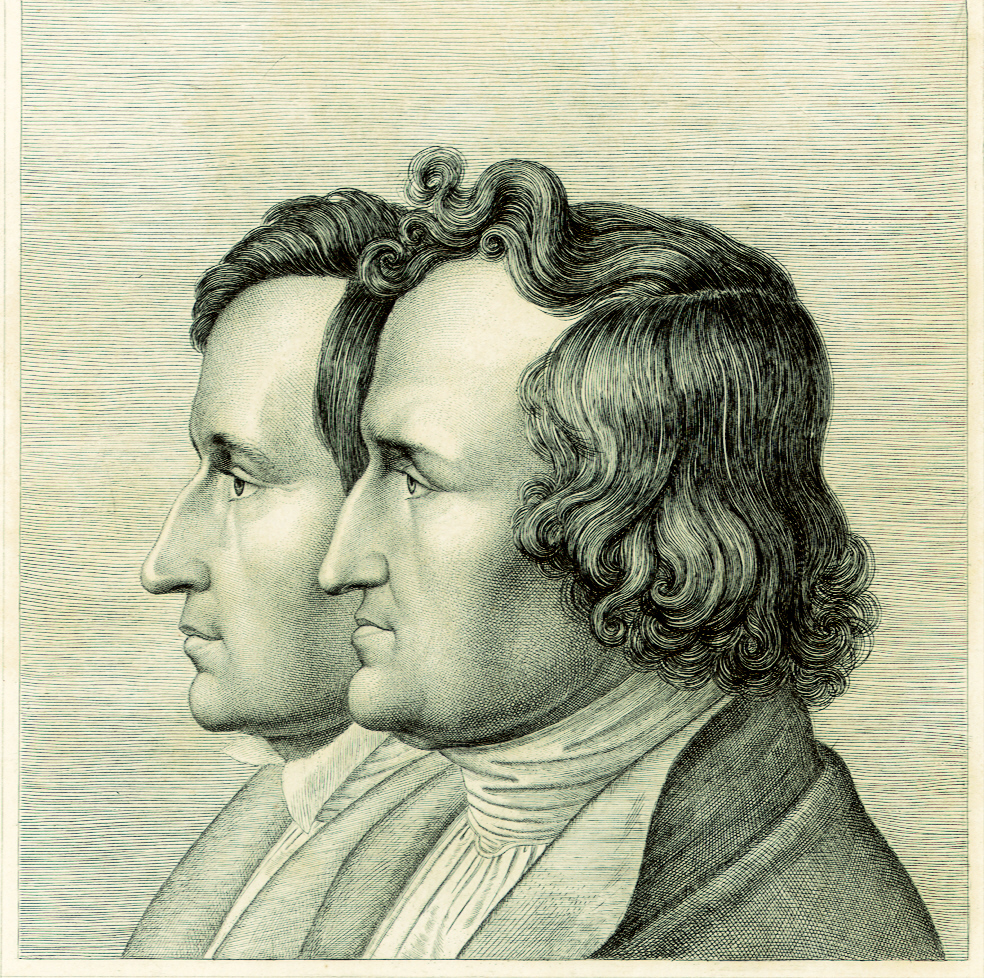Einheit 7.8 (online)

![]() Wer sind die Brüder Grimm? Recherchieren Sie im Internet. Finden Sie 3 Dinge über die Brüder Grimm heraus (für die nächste Deutschstunde).
Wer sind die Brüder Grimm? Recherchieren Sie im Internet. Finden Sie 3 Dinge über die Brüder Grimm heraus (für die nächste Deutschstunde).
![]() Marburg und Kassel – Spuren der Brüder Grimm. Sehen Sie das Video an und machen Sie Notizen.
Marburg und Kassel – Spuren der Brüder Grimm. Sehen Sie das Video an und machen Sie Notizen.
[h5p id=”179″]
 |
 |
| das Landgrafenschloss | die Elisabethkirche |
![]() Übung 1: Eine Reise nach Marburg. Klicken Sie hier und Sie können das Perfekt und Präteritum wiederholen.
Übung 1: Eine Reise nach Marburg. Klicken Sie hier und Sie können das Perfekt und Präteritum wiederholen.
[h5p id=”180″]
![]() Grammatik
Grammatik
als, wenn, wann
You may have noticed that each time you’re going to use to word “when” you often pause and are unsure which word to choose. It is a tricky concept in German. Here are the three different ways and an explanation of when to use which word.
In Einheit 2.6 you learned the question word “wann”. As we learned, we use “wann” when asking direct or indirect questions about a specific time or day.
Wann hast du Deutsch?
Weißt du, wann dein Zug ankommt?
In Einheit 4.8 you learned about the subordinating conjunction “wenn”. Use “wenn” in these circumstances:
- repeated event in the past, present or future (whenever)
- Ich lese gern, wenn ich Freizeit habe.
- Wenn Tante Emma uns besucht, bringt sie immer einen Kuchen mit.
- conditional (if/when)
- Wenn du mal nach Köln kommst, musst du mich besuchen!
Finally, the third way to say “when” is with “als”. “Als” is also a subordinating conjunction. Use “als” in these circumstances:
- single event (point in time) in the past or present
- Als ich ins Klassenzimmer gekommen bin, war meine Professorin schon da.
- time period in the past
- Meine Eltern sind nach Luzern gezogen, als ich sechs war.
- Als ich ein Kind war, habe ich immer gelesen.
![]() Übung 2
Übung 2
[h5p id=”181″]
![]() Vergessen Sie nicht!
Vergessen Sie nicht!
In Einheit 5.8 you first learned about prepositions that require the dative case. We have continued to see and use them throughout the last few units. Remember this means that any articles or pronouns used after the preposition are changed to their dative forms. Please notice that sometime it can also just be the preposition + a noun (and there is nothing in the “dative”).
aus (out of/from): Ich hole den Reisepass aus meiner Tasche. / Ich komme aus den USA.
außer (except for): Außer dir habe ich keinen Freund.
bei (at/at the house of): Er arbeitet bei Mercedes. / Du kannst bei mir übernachten.
mit (with/by): Ich wohne mit meinen Eltern. / Fährst du gern mit dem Bus?
nach (after/to): Nach der Schule spielt sie Tennis. / Wir fliegen nach Spanien.
seit (since/for): Seit September lerne ich Deutsch. / Ich studiere seit einem Jahr.
von (from/of): Ich komme von der Uni. / Der Bruder von meiner Mutter ist mein Onkel.
zu (to): Ich gehe zum Arzt. / Meine Schwester läuft zu unserer Oma.
![]() Was wissen Sie jetzt? Schreiben Sie Quiz 13 auf Canvas.
Was wissen Sie jetzt? Schreiben Sie Quiz 13 auf Canvas.
Media Attributions
- Brüder_Grimm_Doppelporträt_1843
- magnifying-glass
- play
- marburger-castle-83638_1920
- Marburg_Elisabethkirche_087-89_vhzd
- star
- light-bulb
- information
- check mark
